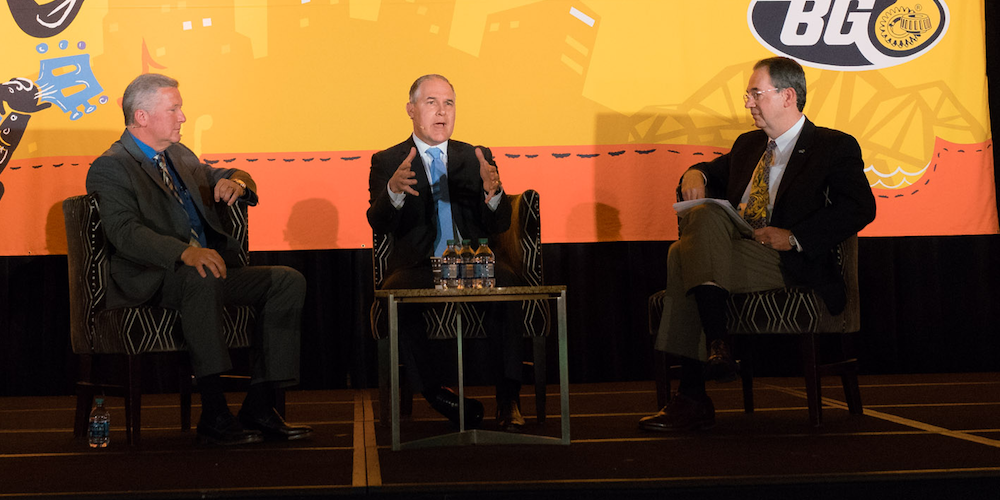
Happy New Year! As you bring 2019 to a close, it’s time to hit the reset button and start fresh.
It’s a given that you are expected to grow your business in 2020 and out-perform last year. The question is how?
If you had stunning growth in 2019, then you struggle with thoughts of “How do I best myself… after coming off of my best year ever?”
If you had a lousy year, then it’s “What did I do wrong – and how do I avoid another disaster?”
Regardless, the answer is found in becoming a master of the basics. If you simply adhere to the basics of our business, the simple meat and potatoes, that have proven successful – then you will grow in 2020.
King Solomon was correct when he said, “There is nothing new under the sun.” It seems like many managers are looking for the latest, greatest digital miracle, or the magical process that will propel their business to the next level; yet true success is found in the basics. And there is nothing more basic and fundamental to fixed ops success than selling service on the drive. It is the centerpiece of a successful fixed ops growth strategy.
Now I am not saying that selling preventative maintenance services will solve all your problems – oh wait a minute; yes, I am. In fact, it doesn’t matter what other processes you have, if there isn’t an effective sales process in place, then your success will be limited.
There is no place in your dealership for a technician that won’t recommend services to sell. There is no place in your dealership for advisors that won’t sell services the technician recommends. And there is no place in your dealership for service mangers that won’t hold technicians and advisors accountable to sell service.
This was clearly underscored a few weeks ago during a secret shopper assignment carried out by one of the ladies on our team. When our shopper arrived at the dealership she was blown away by the prompt, friendly service. As an avid coffee connoisseur, she couldn’t believe the selection of javas, espressos, and lattes they had in the waiting room.
Her diesel pickup was delivered right to the service drive upon completion; only a few steps from where she paid the bill. Oh, by the way, the bathroom was spotless – stocked with paper products, soap, and even flowers.
She left the dealership less than an hour after she arrived. She had a wonderful experience, but… she left with tires that had two thirty-seconds of tread depth, a fuel filter with less than 2% life (according to the digital display), a dirty cabin air filter, and transmission fluid that was dark (original factory fill.)
The dealership had a great meet and greet process, a great caffeine process, a spectacular bathroom process, and a stunning delivery process.
However, they left over $1,500 on the table because they don’t have a sales process.
Now, in fairness to the dealership, they do in fact have a sales process in place – but no one followed the process, and no one held them accountable to follow it.
In addition to the lost revenue, of even greater concern is the fact that she left the dealership with an unsafe vehicle!
This is a true story and this is exactly what happened. Unbelievable, but true. I’m sure you get the point. So, let’s look at the basics of selling service.
For the past 35+ years I’ve taught a simple sales process of 1) Educate the customer, 2) Offer the solution, and 3) As them to buy. Educate. Offer. Ask. That’s the basics of selling.
The most profound truths are profoundly simple and easy to understand. Therefore, if you can keep the communication simple, your customer will have clarity; and with clarity comes sales success.
Let’s look at a profound truth in the automotive industry: The fluid fails before the part. The beginning of transmission failure is transmission fluid failure. Head gaskets fail because the antifreeze got acidic (fluid failure.)
Master cylinders corrode due to moisture absorbed by brake fluid (fluid failure.) There is a direct relationship between engine failure and engine oil failure.
Another profound truth is that fluids are cheaper than parts. At $250 a transmission fluid exchange is expensive – but it’s a lot better than a $5,000 transmission. Antifreeze is cheaper than a water pump. Brake fluid is cheaper than calipers.
A third profound truth is that vehicle owners can’t budget for a catastrophic part failure, but they can budget for routine fluid exchange.
The word track for service advisors would go something like this: “Mrs. Jones, our factory trained technician has recommended a brake fluid exchange service for your Tahoe. The beginning of master cylinder failure is brake fluid failure. Therefore, we have found that by keeping the fluid fresh we can greatly reduce the chances of costly brake system repair down the road. The fluids always fail before the parts, does that sound reasonable? Can we go ahead and do a brake fluid exchange for you today?”
Remember our goal is simplicity. A profound truth explained in easy to understand terms, followed by asking for the sale – today.
I’d suggest you make copies of this article and use it as the basis of your first service sales meeting in 2020. Practice, drill, and role-play. Keep it simple.
About the Author
Charlie Polston is an Automotive Customer Retention and Profitability Consultant with BG Products, Inc. Charlie has been with BG’s Fixed Operations Division for over 38 years. He has trained over 7,500 dealers, managers, and technicians – and has been a frequent workshop leader at NADA’s annual convention.*
https://www.digitaldealer.com/sales-variable-ops/fluid-fails-part-sales-opportunity/



